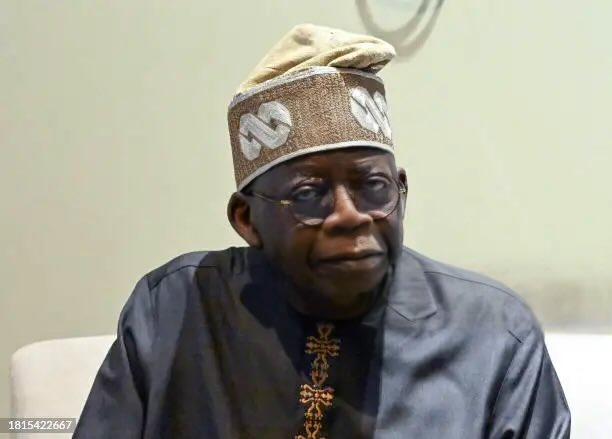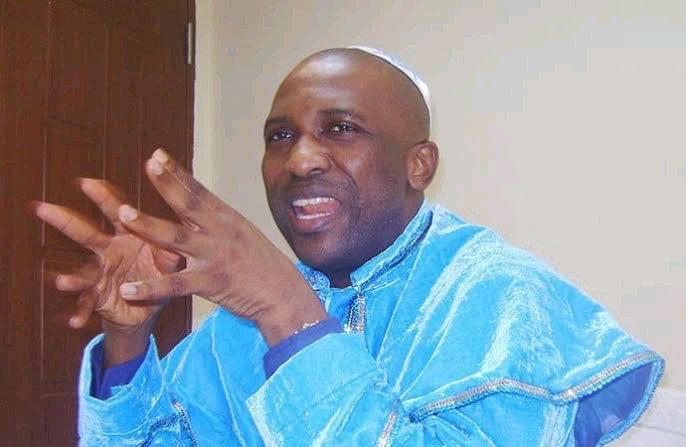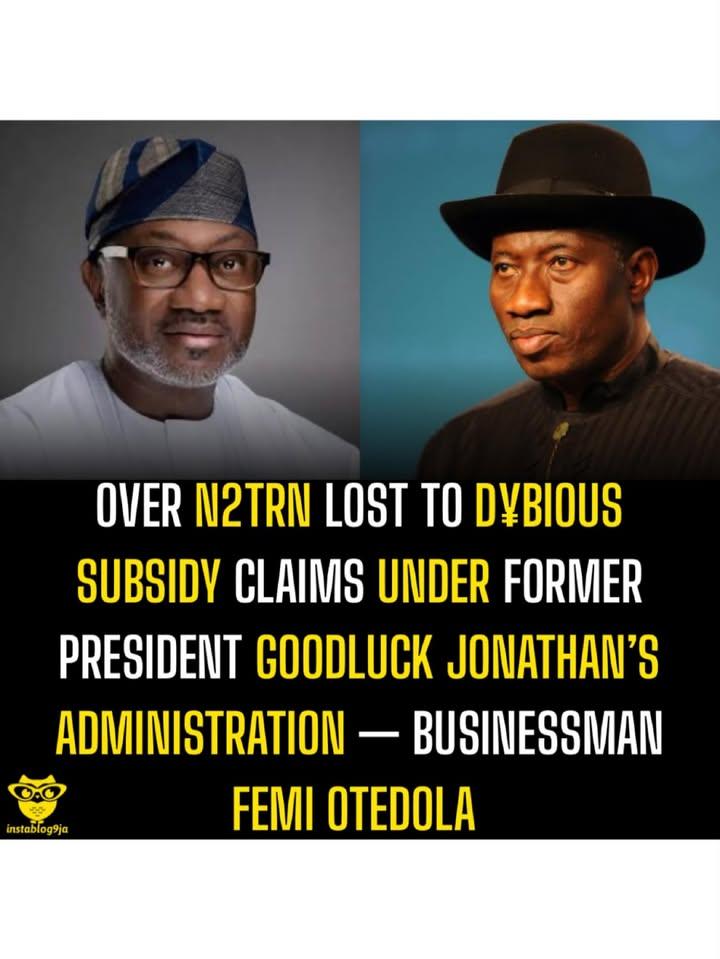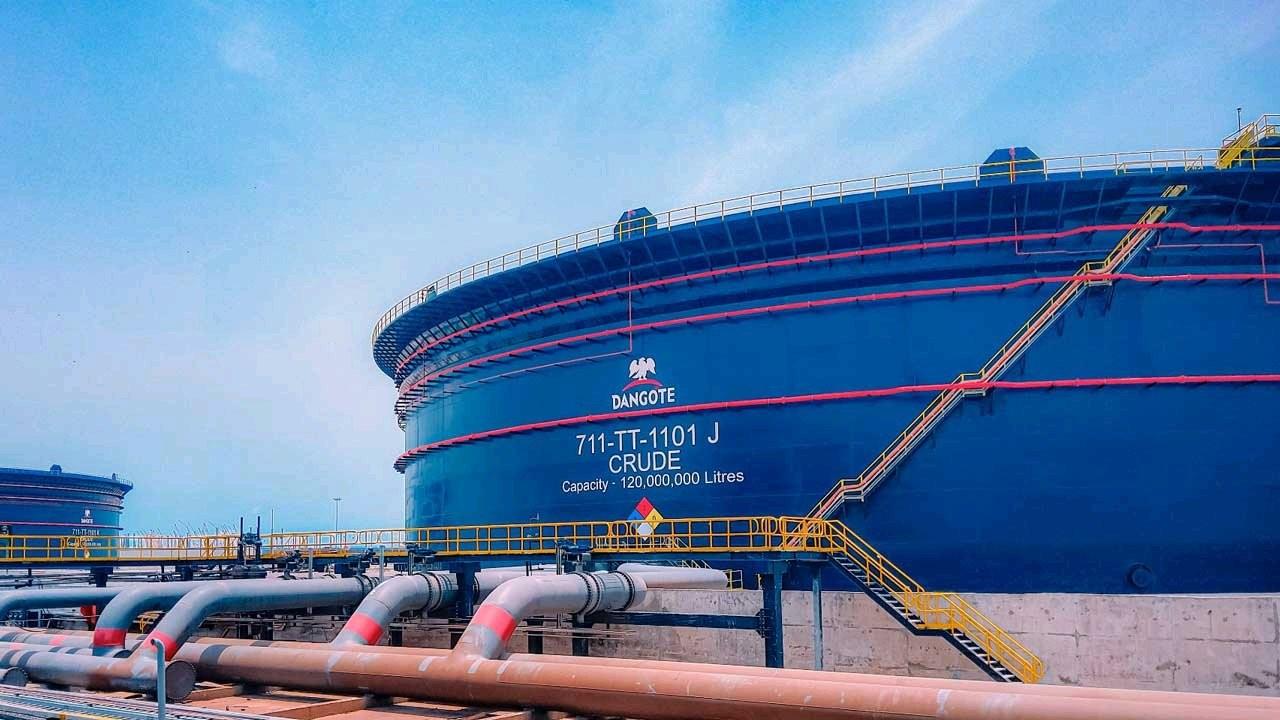Twenty-One Economic Miracles Currently Happening Under President Tinubu
One: Our foreign reserves have crossed the $45 billion mark for the first time in six years. It is now the fourth-highest on the African continent.
Two: The prudent management of our foreign reserves under President Tinubu has led to a 3.93% GDP growth in the immediate past quarter and 4.23% growth in the quarter before that (Q2, 2025).
Three: Nigeria, under President Tinubu, has, within two years, moved from being Africa's biggest petrol importer to becoming West Africa's largest exporter of the same product.
Four: For the first time in over a decade, Nigeria has overshot its OPEC quota for three consecutive months and is set to do the same for the fourth month, producing an average of 1.71 million barrels per day.
Five: President Tinubu gave Nigerian airlines direct flights to London's Gatwick Airport, United Kingdom, London's Heathrow Airport, United Kingdom, São Paulo, Brazil, Bogotá, Colombia, Entebbe, Uganda, Dar es Salaam, Tanzania, Algiers, Algeria, and St. Kitts and Nevis in the Caribbean.
Six: Oil theft has been reduced to less than 10,000 barrels per day, a sixteen-year low.
Seven: Nigeria achieved its revenue target for the entire year in August, a first in our history.
Eight: The Nigerian Stock Exchange rose above 130,000 All Share Index for the first time ever.
Nine: Our economy expanded by $67 billion in just two years, moving Nigeria's GDP from a ₦269.29 trillion economy on May 29, 2023, when Asiwaju became President, to ₦372.8 trillion today.
Ten: Between January and August 2025, non-oil tax revenue was ₦20.59 trillion, a 40.5% increase from the ₦14.6 trillion recorded in the corresponding period in 2024.
Eleven: MTN Nigeria Limited hit a record valuation of ₦10 trillion, the first Nigerian company to do so.
Twelve: Food prices have fallen significantly, resulting in a drop in inflation to 16.05% at present, down from 20.12% in August 2025, a 1.76% decline from July's 21.88%.
Thirteen: Dangote and other retailers have crashed fuel prices below ₦1000.
Fourteen: The Naira has stabilised and is now below ₦1500 to $, making it among the world's best-performing currencies, according to Fitch Ratings.
Fifteen: Nigeria broke its power generation record with a peak generation of 5,801.84MW and maximum daily energyoutput of 128,370.75 megawatt-hours (MWh), the highest ever attained in the history of the electricity industry in Nigeria.
Sixteen: After a record trade surplus last year, Nigeria appears set to beat its 2024 figure. Our trade surplus rose 44.3% in Q2 to ₦7.46 trillion, up from ₦5.17 trillion in Q1.
Seventeen: In a sign of an improving economy, the Central Bank of Nigeria reduced interest rates by 50 basis points to 27%, the first time since the #COVID19 pandemic.
Eighteen: Fitch and S&P Global Ratings upgraded Nigeria's economy to a Stable B.
Nineteen: Two PhDs in economics, in the persons of Dr Ngozi Okonjo-Iweala, the Director-General of the World Trade Organisation, and the former Governor of the Central Bank of Nigeria, and incumbent Governor of Anambra, Dr Chukwuma Soludo, both confirmed that President Tinubu has "stabilised the economy".
Twenty: Rail transport expanded in Nigeria by 43.08% in Q2 2025.
Twenty-one: Road transport expanded by 24.50% in Q2 2025, driven by the ₦13 trillion 1,068-kilometre Illela-Sokoto-Badagry Superhighway, and the ₦15 trillion 750-kilometre Lagos-Calabar Coastal Highway, currently under construction.
Bonus: Student loans were awarded to an unprecedented 500,000 students, with hundreds of thousands more awaiting their loans.
Effective rebranding projects a positive image of what is happening. It is the best way to neutralise enemies of the nation who want to overwhelm the airwaves with negative information. If you are a patriot who loves Nigeria and wants your country to progress, please spread this truthful message.
Reno Omokri
One: Our foreign reserves have crossed the $45 billion mark for the first time in six years. It is now the fourth-highest on the African continent.
Two: The prudent management of our foreign reserves under President Tinubu has led to a 3.93% GDP growth in the immediate past quarter and 4.23% growth in the quarter before that (Q2, 2025).
Three: Nigeria, under President Tinubu, has, within two years, moved from being Africa's biggest petrol importer to becoming West Africa's largest exporter of the same product.
Four: For the first time in over a decade, Nigeria has overshot its OPEC quota for three consecutive months and is set to do the same for the fourth month, producing an average of 1.71 million barrels per day.
Five: President Tinubu gave Nigerian airlines direct flights to London's Gatwick Airport, United Kingdom, London's Heathrow Airport, United Kingdom, São Paulo, Brazil, Bogotá, Colombia, Entebbe, Uganda, Dar es Salaam, Tanzania, Algiers, Algeria, and St. Kitts and Nevis in the Caribbean.
Six: Oil theft has been reduced to less than 10,000 barrels per day, a sixteen-year low.
Seven: Nigeria achieved its revenue target for the entire year in August, a first in our history.
Eight: The Nigerian Stock Exchange rose above 130,000 All Share Index for the first time ever.
Nine: Our economy expanded by $67 billion in just two years, moving Nigeria's GDP from a ₦269.29 trillion economy on May 29, 2023, when Asiwaju became President, to ₦372.8 trillion today.
Ten: Between January and August 2025, non-oil tax revenue was ₦20.59 trillion, a 40.5% increase from the ₦14.6 trillion recorded in the corresponding period in 2024.
Eleven: MTN Nigeria Limited hit a record valuation of ₦10 trillion, the first Nigerian company to do so.
Twelve: Food prices have fallen significantly, resulting in a drop in inflation to 16.05% at present, down from 20.12% in August 2025, a 1.76% decline from July's 21.88%.
Thirteen: Dangote and other retailers have crashed fuel prices below ₦1000.
Fourteen: The Naira has stabilised and is now below ₦1500 to $, making it among the world's best-performing currencies, according to Fitch Ratings.
Fifteen: Nigeria broke its power generation record with a peak generation of 5,801.84MW and maximum daily energyoutput of 128,370.75 megawatt-hours (MWh), the highest ever attained in the history of the electricity industry in Nigeria.
Sixteen: After a record trade surplus last year, Nigeria appears set to beat its 2024 figure. Our trade surplus rose 44.3% in Q2 to ₦7.46 trillion, up from ₦5.17 trillion in Q1.
Seventeen: In a sign of an improving economy, the Central Bank of Nigeria reduced interest rates by 50 basis points to 27%, the first time since the #COVID19 pandemic.
Eighteen: Fitch and S&P Global Ratings upgraded Nigeria's economy to a Stable B.
Nineteen: Two PhDs in economics, in the persons of Dr Ngozi Okonjo-Iweala, the Director-General of the World Trade Organisation, and the former Governor of the Central Bank of Nigeria, and incumbent Governor of Anambra, Dr Chukwuma Soludo, both confirmed that President Tinubu has "stabilised the economy".
Twenty: Rail transport expanded in Nigeria by 43.08% in Q2 2025.
Twenty-one: Road transport expanded by 24.50% in Q2 2025, driven by the ₦13 trillion 1,068-kilometre Illela-Sokoto-Badagry Superhighway, and the ₦15 trillion 750-kilometre Lagos-Calabar Coastal Highway, currently under construction.
Bonus: Student loans were awarded to an unprecedented 500,000 students, with hundreds of thousands more awaiting their loans.
Effective rebranding projects a positive image of what is happening. It is the best way to neutralise enemies of the nation who want to overwhelm the airwaves with negative information. If you are a patriot who loves Nigeria and wants your country to progress, please spread this truthful message.
Reno Omokri
Twenty-One Economic Miracles Currently Happening Under President Tinubu
One: Our foreign reserves have crossed the $45 billion mark for the first time in six years. It is now the fourth-highest on the African continent.
Two: The prudent management of our foreign reserves under President Tinubu has led to a 3.93% GDP growth in the immediate past quarter and 4.23% growth in the quarter before that (Q2, 2025).
Three: Nigeria, under President Tinubu, has, within two years, moved from being Africa's biggest petrol importer to becoming West Africa's largest exporter of the same product.
Four: For the first time in over a decade, Nigeria has overshot its OPEC quota for three consecutive months and is set to do the same for the fourth month, producing an average of 1.71 million barrels per day.
Five: President Tinubu gave Nigerian airlines direct flights to London's Gatwick Airport, United Kingdom, London's Heathrow Airport, United Kingdom, São Paulo, Brazil, Bogotá, Colombia, Entebbe, Uganda, Dar es Salaam, Tanzania, Algiers, Algeria, and St. Kitts and Nevis in the Caribbean.
Six: Oil theft has been reduced to less than 10,000 barrels per day, a sixteen-year low.
Seven: Nigeria achieved its revenue target for the entire year in August, a first in our history.
Eight: The Nigerian Stock Exchange rose above 130,000 All Share Index for the first time ever.
Nine: Our economy expanded by $67 billion in just two years, moving Nigeria's GDP from a ₦269.29 trillion economy on May 29, 2023, when Asiwaju became President, to ₦372.8 trillion today.
Ten: Between January and August 2025, non-oil tax revenue was ₦20.59 trillion, a 40.5% increase from the ₦14.6 trillion recorded in the corresponding period in 2024.
Eleven: MTN Nigeria Limited hit a record valuation of ₦10 trillion, the first Nigerian company to do so.
Twelve: Food prices have fallen significantly, resulting in a drop in inflation to 16.05% at present, down from 20.12% in August 2025, a 1.76% decline from July's 21.88%.
Thirteen: Dangote and other retailers have crashed fuel prices below ₦1000.
Fourteen: The Naira has stabilised and is now below ₦1500 to $, making it among the world's best-performing currencies, according to Fitch Ratings.
Fifteen: Nigeria broke its power generation record with a peak generation of 5,801.84MW and maximum daily energyoutput of 128,370.75 megawatt-hours (MWh), the highest ever attained in the history of the electricity industry in Nigeria.
Sixteen: After a record trade surplus last year, Nigeria appears set to beat its 2024 figure. Our trade surplus rose 44.3% in Q2 to ₦7.46 trillion, up from ₦5.17 trillion in Q1.
Seventeen: In a sign of an improving economy, the Central Bank of Nigeria reduced interest rates by 50 basis points to 27%, the first time since the #COVID19 pandemic.
Eighteen: Fitch and S&P Global Ratings upgraded Nigeria's economy to a Stable B.
Nineteen: Two PhDs in economics, in the persons of Dr Ngozi Okonjo-Iweala, the Director-General of the World Trade Organisation, and the former Governor of the Central Bank of Nigeria, and incumbent Governor of Anambra, Dr Chukwuma Soludo, both confirmed that President Tinubu has "stabilised the economy".
Twenty: Rail transport expanded in Nigeria by 43.08% in Q2 2025.
Twenty-one: Road transport expanded by 24.50% in Q2 2025, driven by the ₦13 trillion 1,068-kilometre Illela-Sokoto-Badagry Superhighway, and the ₦15 trillion 750-kilometre Lagos-Calabar Coastal Highway, currently under construction.
Bonus: Student loans were awarded to an unprecedented 500,000 students, with hundreds of thousands more awaiting their loans.
Effective rebranding projects a positive image of what is happening. It is the best way to neutralise enemies of the nation who want to overwhelm the airwaves with negative information. If you are a patriot who loves Nigeria and wants your country to progress, please spread this truthful message.
Reno Omokri
0 Comentários
·0 Compartilhamentos
·96 Visualizações














